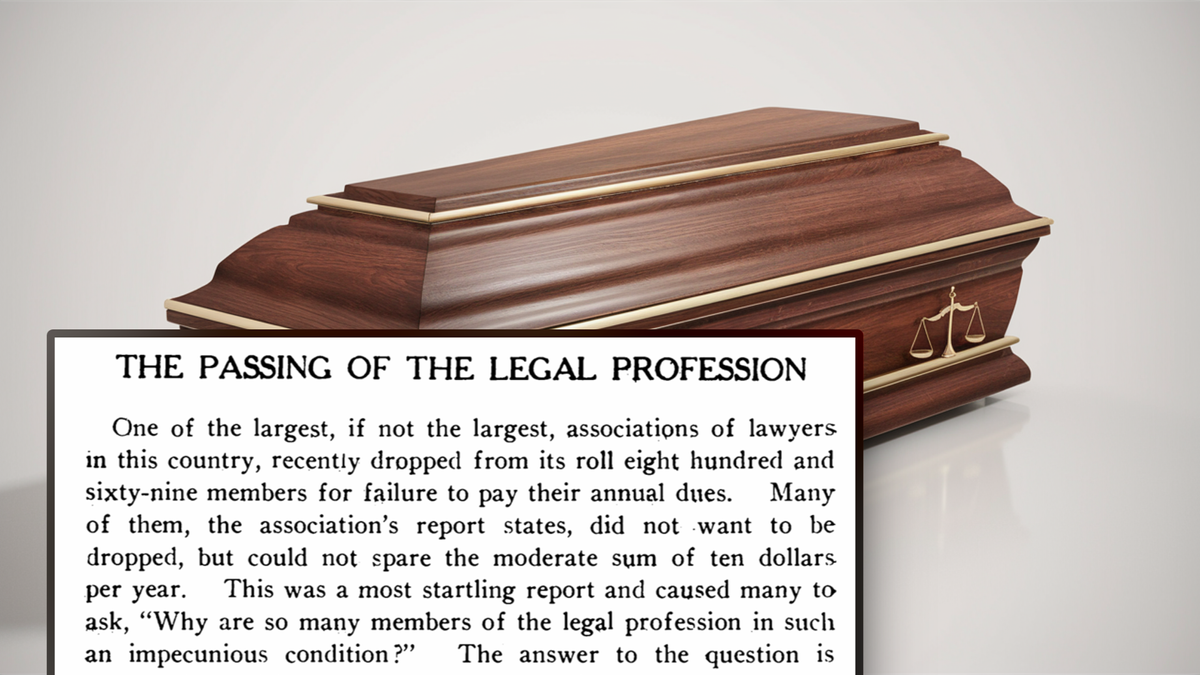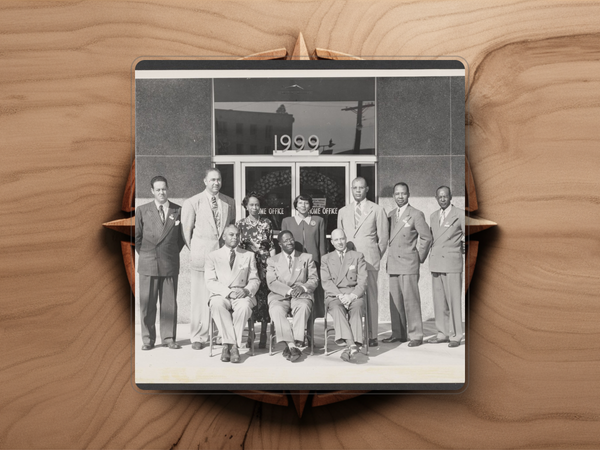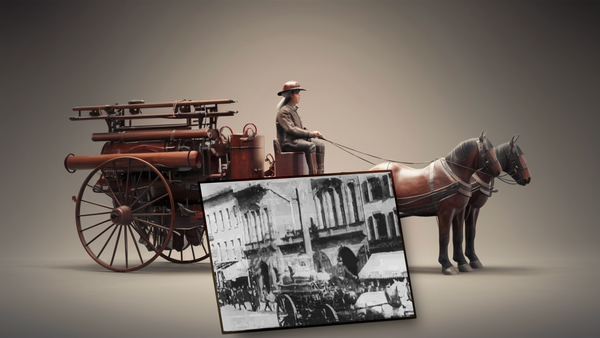"To Hell With Ethics!" Did Insurance Companies Strip Attorneys of Their Practices in 1913?
In 1913, attorney George W. Bristol penned "The Passing of the Legal Profession", and what he likely saw as a obituary for independent legal practice. His Yale Law Journal article provides a fascinating window into the insurance industry's growing influence in the early 20th century.

This blog post provides a brief overview of an interesting and sensational 24-page opinion piece published in the Yale Law Journal in 1913, titled "The Passing of the Legal Profession".
While things are very different now, over 100 years later, archival articles like these are an interesting look into the feelings and personal opinions of individual professionals during industry changes.
Attorney George W. Bristol saw what he interpreted as a disturbing sign of his profession's decline in 1913: 869 attorneys had been dropped from one of the country's largest legal associations because they couldn't afford the $10 annual dues (approximately $290 in 2024).
Rather than an isolated incident, Bristol identified this as a direct result of insurance companies systematically taking over traditional legal services and their associated revenue streams.

The Scale of "Corporate Takeover"
In the article, Bristol revealed the massive shift in legal revenue: in New York City alone, title insurance and mortgage companies were allegedly collecting $10 million annually ($290 million in 2024) in what he called "legal fees"... Money that previously would have gone to independent attorneys.
To illustrate the industrial scale of this transformation, Bristol documented how one insurance company:
- Handled approximately 3,000 cases annually in New York City
- Used a single attorney's name as counsel on 381 different court cases
- Employed formerly independent attorneys as mere salaried workers
This assembly-line approach is something we're used to now in many industries and businesses, but in 1913, this was a new concept and practice! According to the article, when this changed, attorneys were no longer the traditional independent professionals serving clients, but corporate employees serving shareholders. The numbers showed how thoroughly insurance companies had industrialized legal practice - and why so many independent attorneys could no longer make a living.
In Their Own Words: The Corporate Takeover of Legal Services
Now, on to the sensational parts of the article, and where part of the title came from... Bristol's article captures several remarkable quotes that reveal some of the attitudes behind these changes, with particularly telling context around each:
The Ethics Exchange

The most shocking quote comes from an exchange Bristol personally witnessed between an insurance adjuster and a lawyer. When the lawyer refused to settle a case cheaply and reminded the adjuster about professional ethics, the adjuster reportedly flared up and declared something shocking:
"I once heard an adjuster of one of these Insurance Companies say to a lawyer, in substance, "I will give you so much for the case". The lawyer refused, and the adjuster replied, "Then we will settle with your client for less and you will get nothing"; to which the lawyer in return replied, "No, you won't; it is not proper for you to go to my client and deal with him direct; it is contrary to the ethics of our profession". At which the adjuster flared up and said, "To H- with ethics; we are not lawyers, we are a corporation practicing law for the money there is in it, and we are going to settle the cheapest way."
Woah. Let's read that last part again:
"To H- with ethics; we are not lawyers, we are a corporation practicing law for the money there is in it, and we are going to settle the cheapest way."
Shocking sentiments.
This raw exchange perfectly captured Bristol's fears about corporate priorities overshadowing professional obligations.
The Title Insurance Deception
Bristol's criticism of title insurance companies stemmed from his observation of their evolution:
"These companies gained their foothold in the confidence of the investing public because of the insurance feature of the contracts which they issue, and when such companies first came into existence they did insure titles, but to-day title insurance is more of a myth than a reality."

He goes on to explain that these companies had begun excluding virtually every possible title dispute from their policies, essentially providing insurance only for risks that needed no insurance.
Bristol's Degradation Warning
In perhaps his most eloquent warning about corporate influence, Bristol argued:
"The Bar, which is an institution of the highest usefulness and standing, would be degraded if even its humblest member became subject to the orders of a money-making corporation engaged not in conducting litigation for itself, but in the business of conducting litigation for others."
This came after he described how corporations were hiring lawyers as mere employees, removing their professional independence and making them answerable to corporate profits rather than client needs.
Insurance Companies' Growing Wealth
His financial data cited in his article revealed the massive scale of insurance company operations way back in 1913:
Company #1:
- 1910 Revenue: $5,236,370.52 ($152 million in 2024)
- 1910 Profit: $1,325,125.77 ($38.5 million in 2024)
Company #2:
- 1910 Revenue: $3,619,585.82 ($105 million in 2024)
- 1910 Profit: $1,000,797.68 ($29 million in 2024)
Company #3:
- 1910 Revenue: $2,270,772.71 ($66 million in 2024)
- 1910 Profit: $748,227.67 ($21.7 million in 2024)
Total industry profits from 17 corporations: $7,695,793.53 ($223.5 million in 2024)
The Profession's Dilemma
Seeing his colleagues unable to afford basic professional dues while corporations posted record profits, Bristol concluded with a pointed question that captured the profession's dilemma:
"Shall we continue to practice law as a profession, honor its traditions, cherish and live up to its high ideals, and die poor, or shall we fall in line with our more progressive brothers, pass over into the business world—incorporate—exploit the public—and live rich?"

Attorneys: what do you think about this sensational article? Obviously, things have changed, and we live in a different era.
I found it really interesting to see such raw human emotion in law journal article from over 100 years ago, and I hope you did too!
If you enjoy these real, raw, micro snapshots into insurance history, be sure to subscribe for more.
Citations and References:
Bristol, George W. "The Passing of the Legal Profession." The Yale Law Journal, vol. 22, no. 8, June 1913, pp. 590-613.
Note: All inflation adjustments calculated using the U.S. Bureau of Labor Statistics CPI Inflation Calculator, comparing 1910/1913 dollars to 2024.





